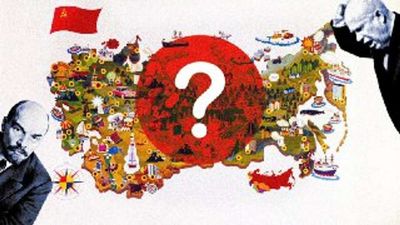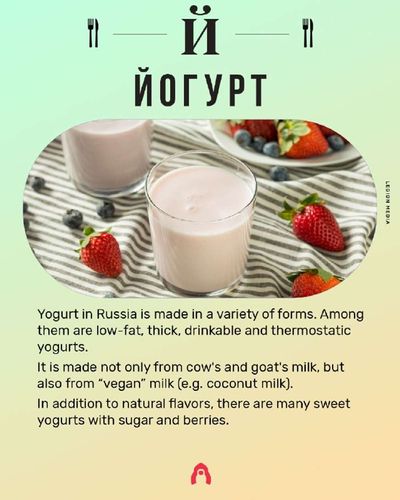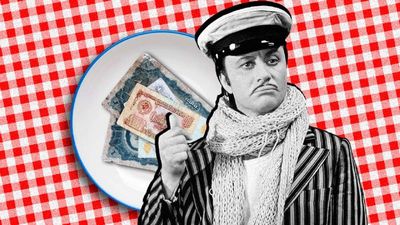
Gateway to Russia
Main chat: http://bit.ly/3XUF9SE
Learn Russian chat: @gatewaytorussia
Queries: @pulya
We are the world’s largest community of people interested in Russia - be it culture, travel, history, learning the language and so much more
gw2ru.com
Learn Russian chat: @gatewaytorussia
Queries: @pulya
We are the world’s largest community of people interested in Russia - be it culture, travel, history, learning the language and so much more
gw2ru.com
TGlist rating
0
0
TypePublic
Verification
Not verifiedTrust
Not trustedLocationРосія
LanguageOther
Channel creation dateApr 12, 2016
Added to TGlist
May 23, 2024Linked chat
Latest posts in group "Gateway to Russia"
17.05.202512:07
What is going on in this painting by Pavel Chistyakov?
*In 1861, the candidates for the Great Gold Medal of the St. Petersburg Academy of Arts had to paint a canvas on the theme of “Grand Duchess Sophia Vitovtovna at the wedding of Grand Duke Vasily the Dark in 1433 rips off Prince Vasily Kosoy’s belt, which once belonged to Dmitry Donskoy”. Among the candidates was Chistyakov, who ended up winning the competition.
*The painting depicts the wedding of Dmitry Donskoy’s grandson, Moscow Grand Duke Vasily II, and Maria Yaroslavna. Among the guests were his relatives on his grandfather’s side – Dmitry and Vasily, the sons of Prince Yuri of Zvenigorod.
*A scandal broke out at the wedding. Grand Duchess Sophia Vitovtovna, Vasily II's mother, learned that Prince Vasily Yuryevich had come to the feast wearing Dmitry Donskoy's golden belt, which had once been stolen. In anger, she tore off the relic, because it was not just a belt, but a symbol of the grand ducal power.
*The family scandal escalated into a civil war: relatives recalled old grievances and a long-term feud began.
*The artist received 800 rubles from the Academy of Arts for the painting.
Credit: Russian museum
🔔 Gateway to Russia
*In 1861, the candidates for the Great Gold Medal of the St. Petersburg Academy of Arts had to paint a canvas on the theme of “Grand Duchess Sophia Vitovtovna at the wedding of Grand Duke Vasily the Dark in 1433 rips off Prince Vasily Kosoy’s belt, which once belonged to Dmitry Donskoy”. Among the candidates was Chistyakov, who ended up winning the competition.
*The painting depicts the wedding of Dmitry Donskoy’s grandson, Moscow Grand Duke Vasily II, and Maria Yaroslavna. Among the guests were his relatives on his grandfather’s side – Dmitry and Vasily, the sons of Prince Yuri of Zvenigorod.
*A scandal broke out at the wedding. Grand Duchess Sophia Vitovtovna, Vasily II's mother, learned that Prince Vasily Yuryevich had come to the feast wearing Dmitry Donskoy's golden belt, which had once been stolen. In anger, she tore off the relic, because it was not just a belt, but a symbol of the grand ducal power.
*The family scandal escalated into a civil war: relatives recalled old grievances and a long-term feud began.
*The artist received 800 rubles from the Academy of Arts for the painting.
Credit: Russian museum
🔔 Gateway to Russia


16.05.202512:06
Russian wordlists: Cinema
As the 2025 Cannes film festival has started, let’s learn some handy Russian vocabulary devoted to cinema and watching movies!
Cinematographer – Кинематограф (kinematograf)
Film, movie – Фильм (film)
Full-length movie – Полнометражный фильм (polnometrazhny film)
Short film – Короткометражный фильм (korotkometrazhny film)
Black & white movie – Чёрно-белый фильм (chyorno-bely film)
Genre – Жанр (zhanr)
Comedy – Комедия (komediya)
Musical – Мюзикл (myuzikl)
Documentary – Документальный фильм (dokumentalny film)
Historical drama – Историческая драма (istoricheskaya drama)
Psychological drama – Психологическая драма (psikhologicheskaya drama)
Action movie – Боевик (boyevik)
Melodrama – Мелодрама (melodrama)
Horror – Фильм ужасов (film uzhasov)
Director – Режиссёр (rezhiser)
Producer – Продюсер (prodyuser)
Script – Сценарий (stsenary)
Actor – Актёр (aktyor)
Actress – Актриса (aktrisa)
Movie star – Кинозвезда (kinozvezda)
Movie theater, cinema hall – Кинотеатр, кинозал (kinoteatr, kinozal)
Cinema, movie – Кино (kino)
Festival – Фестиваль (festival’)
Jury – Жюри (zhuri)
Prize – Приз (priz)
Award – Награда (nagrada)
Red carpet – Красная дорожка (krasnaya dorozhka)
📷 Andrei Apoev/ Getty Images
🔔 Gateway to Russia
As the 2025 Cannes film festival has started, let’s learn some handy Russian vocabulary devoted to cinema and watching movies!
Cinematographer – Кинематограф (kinematograf)
Film, movie – Фильм (film)
Full-length movie – Полнометражный фильм (polnometrazhny film)
Short film – Короткометражный фильм (korotkometrazhny film)
Black & white movie – Чёрно-белый фильм (chyorno-bely film)
Genre – Жанр (zhanr)
Comedy – Комедия (komediya)
Musical – Мюзикл (myuzikl)
Documentary – Документальный фильм (dokumentalny film)
Historical drama – Историческая драма (istoricheskaya drama)
Psychological drama – Психологическая драма (psikhologicheskaya drama)
Action movie – Боевик (boyevik)
Melodrama – Мелодрама (melodrama)
Horror – Фильм ужасов (film uzhasov)
Director – Режиссёр (rezhiser)
Producer – Продюсер (prodyuser)
Script – Сценарий (stsenary)
Actor – Актёр (aktyor)
Actress – Актриса (aktrisa)
Movie star – Кинозвезда (kinozvezda)
Movie theater, cinema hall – Кинотеатр, кинозал (kinoteatr, kinozal)
Cinema, movie – Кино (kino)
Festival – Фестиваль (festival’)
Jury – Жюри (zhuri)
Prize – Приз (priz)
Award – Награда (nagrada)
Red carpet – Красная дорожка (krasnaya dorozhka)
📷 Andrei Apoev/ Getty Images
🔔 Gateway to Russia


16.05.202510:39
🤨What would you choose as a souvenir from Russia?
P.S. Catch more of my lessons on YouTube!
#russianclasses
🔔 Gateway to Russia
P.S. Catch more of my lessons on YouTube!
#russianclasses
🔔 Gateway to Russia
16.05.202510:06
‘Aurora’: the most legendary ship of the Russian fleet
Few ships have survived what the cruiser ‘Aurora’ went through. In October 1904, it almost started a war against Great Britain.
The ‘Aurora’ was sailing from the Baltic Sea to the Far East as part of the 2nd Pacific Squadron to fight the Japanese. Near the British Isles, Russian ships mistook English fishing trawlers for enemy destroyers in the fog and fired at them.
The so-called ‘Hull Incident’ outraged British society and the local press dubbed the Russians “pirates” and “a fleet of madmen”. Thanks to the efforts of diplomats from the two empires, war was avoided.
Having reached the Far East, the 2nd Pacific Squadron “got out of the frying pan and into the fire”. At the end of May 1905, it was completely destroyed near the Japanese island of Tsushima.
The ‘Aurora’ miraculously managed to escape and reach Manila, where it was interned. After the conclusion of peace, the ship returned to Russia.
During World War I, the cruiser took part in military operations in the Baltic Sea, but its finest hour was during the October Revolution of 1917. On November 7, it fired a blank shot, which became the signal for the Bolsheviks to storm the Winter Palace, where the Provisional Government was meeting.
During World War II, the ‘Aurora’ took part in the defense of Leningrad. In 1948, the ship was permanently moored at the Petrograd Embankment.
Today, the ‘Aurora’ is a floating museum and one of the main symbols of St. Petersburg. No excursion around the city is complete without a visit to this legendary ship.
Credit: Stan Smolin (CC BY-SA 4.0)
🔔 Gateway to Russia
Few ships have survived what the cruiser ‘Aurora’ went through. In October 1904, it almost started a war against Great Britain.
The ‘Aurora’ was sailing from the Baltic Sea to the Far East as part of the 2nd Pacific Squadron to fight the Japanese. Near the British Isles, Russian ships mistook English fishing trawlers for enemy destroyers in the fog and fired at them.
The so-called ‘Hull Incident’ outraged British society and the local press dubbed the Russians “pirates” and “a fleet of madmen”. Thanks to the efforts of diplomats from the two empires, war was avoided.
Having reached the Far East, the 2nd Pacific Squadron “got out of the frying pan and into the fire”. At the end of May 1905, it was completely destroyed near the Japanese island of Tsushima.
The ‘Aurora’ miraculously managed to escape and reach Manila, where it was interned. After the conclusion of peace, the ship returned to Russia.
During World War I, the cruiser took part in military operations in the Baltic Sea, but its finest hour was during the October Revolution of 1917. On November 7, it fired a blank shot, which became the signal for the Bolsheviks to storm the Winter Palace, where the Provisional Government was meeting.
During World War II, the ‘Aurora’ took part in the defense of Leningrad. In 1948, the ship was permanently moored at the Petrograd Embankment.
Today, the ‘Aurora’ is a floating museum and one of the main symbols of St. Petersburg. No excursion around the city is complete without a visit to this legendary ship.
Credit: Stan Smolin (CC BY-SA 4.0)
🔔 Gateway to Russia


16.05.202507:26
Question time!
On May 15th the world celebrated the International Day of Families.
And that is one thing Russia has been about throughout its history!
Do you personally believe that familial ties are important to keeping order in a given society?
Or do you think absolute individual autonomy and lack of responsibilities toward others are the way forward?
🔔 Gateway to Russia
On May 15th the world celebrated the International Day of Families.
And that is one thing Russia has been about throughout its history!
Do you personally believe that familial ties are important to keeping order in a given society?
Or do you think absolute individual autonomy and lack of responsibilities toward others are the way forward?
🔔 Gateway to Russia


15.05.202515:01
Bonfires in nature: a hike in Perm
Video by: https://www.instagram.com/an.kichigin
🔔 Gateway to Russia
Video by: https://www.instagram.com/an.kichigin
🔔 Gateway to Russia
14.05.202515:01
The Heart of Chechnya' mosque in central Grozny is one of the largest Islamic prayer centers in the world, capable of accommodating over 10,000 worshippers.
🔔 Gateway to Russia
🔔 Gateway to Russia
14.05.202514:07
I’ve gathered some cute facts about the pets of Catherine the Great!
She adored animals in general, so had lots of them: Italian greyhounds, a cat, a white squirrel and even a monkey! 🐒
❓Do you have the same pets as Catherine? Share your photos below!
📸: Heritage Images, Mint Images, Marc Tissier/500px, eAlisa, KevinCarr/Getty Images
#russianclasses
🔔 Gateway to Russia
She adored animals in general, so had lots of them: Italian greyhounds, a cat, a white squirrel and even a monkey! 🐒
❓Do you have the same pets as Catherine? Share your photos below!
📸: Heritage Images, Mint Images, Marc Tissier/500px, eAlisa, KevinCarr/Getty Images
#russianclasses
🔔 Gateway to Russia
Reposted from: DocuPlanet
DocuPlanet
14.05.202511:27
Mysterious craters on the Yamal Peninsula, reaching depths of 30 meters, puzzle scientists and fuel theories. Indigenous people link them to human wrongdoing. Since 2013, Russian scientists have identified 17 craters, attributing their formation to escaping methane and carbon dioxide. ‘Black Holes of Yamal’ investigates the mysteries of these giant Siberian craters.
Black Holes of Yamal / 2021
#Russia
🎚️ DocuPlanet
➡️ Watch more documentaries like this on our platform en.arteldoc.tv
Black Holes of Yamal / 2021
#Russia
🎚️ DocuPlanet
➡️ Watch more documentaries like this on our platform en.arteldoc.tv
14.05.202510:36
How many Russian dishes starting with 'Й' do you know?
#russiankitchen
🤓Gateway to Russia
#russiankitchen
🤓Gateway to Russia


14.05.202508:37
15 MOST famous quotes by Russian writers
These phrases are used so often in colloquial speech that not everyone remembers the original source.
1. “Beauty will save the world.” (Fyodor Dostoevsky, ‘The Idiot’)
2. “If you want to triumph over the whole world, triumph over yourself.” (Fyodor Dostoevsky, ‘The Possessed’)
3. “All happy families are alike, but every unhappy family is unhappy in its own way.” (Leo Tolstoy, ‘Anna Karenina’)
4. “With womankind, the less we love them, the easier they become to charm.” (Alexander Pushkin, ‘Eugene Onegin’)
5. “A man who's active and incisive can yet keep nail care much in mind.” (Alexander Pushkin, ‘Eugene Onegin’)
6. “Genius and villainy – Two things incompatible.” (Alexander Pushkin, ‘Mozart and Salieri’)
7. “A human being should be entirely beautiful: the face, the clothes, the mind, the thoughts.” (Anton Chekhov, ‘Uncle Vanya’)
8. “Brevity is the sister of talent.” (Anton Chekhov, from a letter to his brother)
9. “The vicious tongues, they are more frightening than a pistol shot.” (Alexander Griboyedov, ‘Woe from Wit’)
10. “Happiness takes no account of time.” (Alexander Griboyedov, ‘Woe from Wit’)
11. “I'd love to serve. Servility is what I hate.” (Alexander Griboyedov, ‘Woe from Wit’)
12. “Love us dirty, for any one will love us clean.” (Nikolai Gogol, ‘Dead Souls, part II’)
13. “Who would grasp Russia with the mind?” (Fyodor Tyutchev. A poem with the same name)
14. “Ruin is not caused by lavatories, but it's something that starts in people's heads.” (Mikhail Bulgakov ‘The Heart of a Dog’)
15. “Manuscripts don’t burn!” (Mikhail Bulgakov ‘The Master and Margarita’)
📷 Gateway to Russia (Photo: State Historical Museum; Leo Tolstoy Museum)
🔔 Gateway to Russia
These phrases are used so often in colloquial speech that not everyone remembers the original source.
1. “Beauty will save the world.” (Fyodor Dostoevsky, ‘The Idiot’)
2. “If you want to triumph over the whole world, triumph over yourself.” (Fyodor Dostoevsky, ‘The Possessed’)
3. “All happy families are alike, but every unhappy family is unhappy in its own way.” (Leo Tolstoy, ‘Anna Karenina’)
4. “With womankind, the less we love them, the easier they become to charm.” (Alexander Pushkin, ‘Eugene Onegin’)
5. “A man who's active and incisive can yet keep nail care much in mind.” (Alexander Pushkin, ‘Eugene Onegin’)
6. “Genius and villainy – Two things incompatible.” (Alexander Pushkin, ‘Mozart and Salieri’)
7. “A human being should be entirely beautiful: the face, the clothes, the mind, the thoughts.” (Anton Chekhov, ‘Uncle Vanya’)
8. “Brevity is the sister of talent.” (Anton Chekhov, from a letter to his brother)
9. “The vicious tongues, they are more frightening than a pistol shot.” (Alexander Griboyedov, ‘Woe from Wit’)
10. “Happiness takes no account of time.” (Alexander Griboyedov, ‘Woe from Wit’)
11. “I'd love to serve. Servility is what I hate.” (Alexander Griboyedov, ‘Woe from Wit’)
12. “Love us dirty, for any one will love us clean.” (Nikolai Gogol, ‘Dead Souls, part II’)
13. “Who would grasp Russia with the mind?” (Fyodor Tyutchev. A poem with the same name)
14. “Ruin is not caused by lavatories, but it's something that starts in people's heads.” (Mikhail Bulgakov ‘The Heart of a Dog’)
15. “Manuscripts don’t burn!” (Mikhail Bulgakov ‘The Master and Margarita’)
📷 Gateway to Russia (Photo: State Historical Museum; Leo Tolstoy Museum)
🔔 Gateway to Russia


14.05.202507:37
Exactly 70 years ago, on May 14, 1955, the ‘Soviet NATO’ – the Warsaw Pact Organization – was created. On this day, in the capital of Poland, European socialist countries signed a treaty of friendship, cooperation and mutual assistance.
The creation of the military-political bloc was a response to the accession of West Germany to NATO. This violated the agreement on the demilitarized status of Germany, reached by the allies at the Potsdam Conference in 1945.
The new organization included the Soviet Union, East Germany, Czechoslovakia, Bulgaria, Romania, Poland, Hungary and Albania. Of course, the USSR took on the main role in it – all the commanders-in-chief of the joint forces and chiefs of staff were Soviet military leaders.
In 1961, however, the bloc suffered its first loss: Albania de facto left the organization, due to a conflict with the USSR. Seven years later, it was formalized.
The most serious challenge for the Warsaw Pact Organization was the so-called ‘Prague Spring’ of 1968, a period of liberalization and radical reforms in Czechoslovakia. On August 21, in order to prevent the country from leaving its sphere of influence, the USSR initiated ‘Operation Danube’.
Military contingents from all member countries of the bloc, with the exception of Romania, entered Czechoslovakia. They took control of key facilities in the country, forcing Alexander Dubcek’s government to begin negotiations on a change in political course.
The Warsaw Pact Organization regularly held military exercises, the largest of which was ‘Zapad-81’ (‘West-81’). More than 100,000 troops participated in them.
After the collapse of socialist regimes in Eastern Europe in the late 1980s, the Warsaw Pact Organization ceased to exist. It was officially dissolved on July 1, 1991, and all its former members soon joined the ranks of NATO, their former enemy.
Credit: Nikolkay Akimov/Nikolay Malyshev/TASS; Dorofey Getmanenko/Sputnik
🔔 Gateway to Russia
The creation of the military-political bloc was a response to the accession of West Germany to NATO. This violated the agreement on the demilitarized status of Germany, reached by the allies at the Potsdam Conference in 1945.
The new organization included the Soviet Union, East Germany, Czechoslovakia, Bulgaria, Romania, Poland, Hungary and Albania. Of course, the USSR took on the main role in it – all the commanders-in-chief of the joint forces and chiefs of staff were Soviet military leaders.
In 1961, however, the bloc suffered its first loss: Albania de facto left the organization, due to a conflict with the USSR. Seven years later, it was formalized.
The most serious challenge for the Warsaw Pact Organization was the so-called ‘Prague Spring’ of 1968, a period of liberalization and radical reforms in Czechoslovakia. On August 21, in order to prevent the country from leaving its sphere of influence, the USSR initiated ‘Operation Danube’.
Military contingents from all member countries of the bloc, with the exception of Romania, entered Czechoslovakia. They took control of key facilities in the country, forcing Alexander Dubcek’s government to begin negotiations on a change in political course.
The Warsaw Pact Organization regularly held military exercises, the largest of which was ‘Zapad-81’ (‘West-81’). More than 100,000 troops participated in them.
After the collapse of socialist regimes in Eastern Europe in the late 1980s, the Warsaw Pact Organization ceased to exist. It was officially dissolved on July 1, 1991, and all its former members soon joined the ranks of NATO, their former enemy.
Credit: Nikolkay Akimov/Nikolay Malyshev/TASS; Dorofey Getmanenko/Sputnik
🔔 Gateway to Russia
14.05.202507:37
14.05.202506:36
In 2024, foreigners were given a new reason to move to Russia. Residents of other countries who “share Russia's spiritual and moral values” could now apply for a temporary residence permit. Among them was our reader Kennon Wong from the UK, who shared his experience with us.
🔔 Gateway to Russia
🔔 Gateway to Russia
14.05.202505:01
Got the life! Seagulls chill on the beach in Zelenogradsk on the Baltic Sea.
Video by: Anna Sorokina
🔔 Gateway to Russia
Video by: Anna Sorokina
🔔 Gateway to Russia
Records
25.01.202505:04
17.8KSubscribers29.03.202520:40
500Citation index15.04.202516:38
1.3KAverage views per post06.03.202516:28
1.2KAverage views per ad post13.05.202523:59
30.91%ER14.04.202515:41
7.48%ERRGrowth
Subscribers
Citation index
Avg views per post
Avg views per ad post
ER
ERR
Log in to unlock more functionality.
























